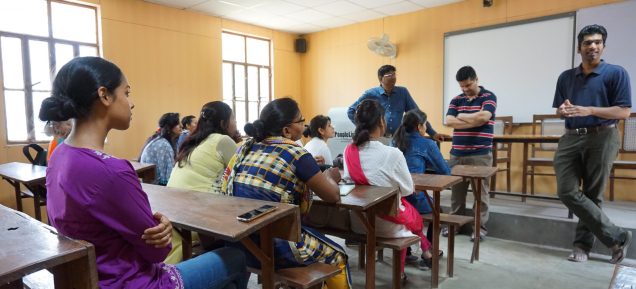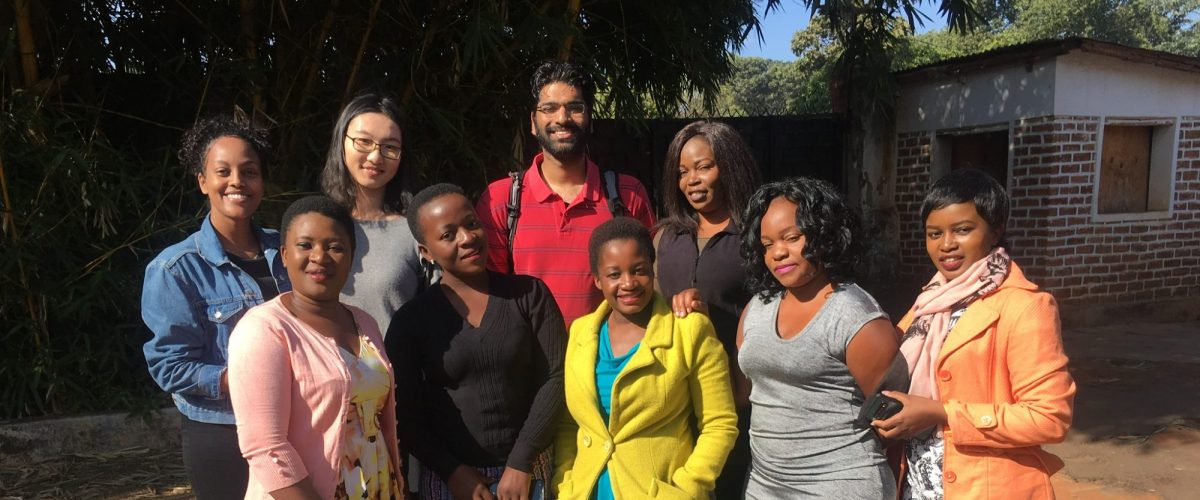Research and CV
-
The aim of the Africa POWER Consortium, which is built on the foundations of the POWER program, is to facilitate collaborative partnerships and initiatives across multiple institutions that work on a range of issues related to women’s empowerment, gender equity, and human well-being in Sub-Saharan Africa. Addressing key challenges in women’s empowerment in Sub-Saharan Africa requires multisectoral approaches and engagements that are costly to facilitate within a single institution or organization. To these ends, the mission of the consortium is to advance women’s empowerment through collaborative, transformative, demand-driven, and policy-embedded research with an engaged community of practitioners and partners. A key function of our in-country partnership hubs is to use the Africa POWER Consortium as a means to seed and implement high quality research, leverage resources for the translation and scale-up of the research findings for operative policy change, and serve as a model for the development of effective partnerships in Sub-Saharan Africa. The consortium brings together five leading organizations — AFIDEP, AidData, EconInsight, IDinsight, and Boston University’s GDP Center.
Malawi Family Planning Study (MFPS)
Learn More
We conduct a randomized controlled trial that identifies the causal impact of an intervention to improve access to postpartum family planning and reproductive health care on contraceptive use, pregnancy, and birth spacing in urban Malawi. Married women aged 18-35 and who were either pregnant or had recently given birth were randomly assigned to either an intervention arm or a control arm. Women assigned to the intervention arm received a package of services over a two-year intervention period. Services included: 1) a brochure and up to six home visits from trained family planning counselors; 2) free transportation to a high-quality family planning clinic; and 3) financial reimbursement for family planning services, consultations, and referrals for services.
Ethiopia Women’s Transport Study (EWTS)
- With Tigabu Getahun, Anastasiia Arbuzova, and Ammar Malik.
Learn More
We assess the extent to which travel demand varies by gender, particularly for women, with the introduction of high-quality transport in urban Ethiopia. A total of 1,022 married couples in Addis Ababa were offered an allowance for on-demand, private taxi services over a two-month period. The allowance recipient was randomized to be either the woman, the man, or the couple jointly. Additionally, the total allowance amount was randomized between “low” (30 USD) and “high” (80 USD). We document significant baseline gender differences in mobility, with 80 percent of men traveling daily or almost every day compared to less than 40 percent of women. As a result of the intervention, we find no significant differences in taxi service utilization measured by allowance take-up, total trips made, the proportion of credit spent, and the average trip cost between the Woman and Man arms, suggesting that the improved transport option may have contributed to closing the gender gap in physical mobility.
Malawi Behavioral Biases Study (MBBS)
Learn More
As a means to achieve full, free, and informed choice within the frameworks of reproductive autonomy and women’s rights, family planning programs have increasingly begun to adopt user-centered approaches to counseling and service provision. These approaches have stressed the role of the individual client as the focal point of interaction and the key decision-maker. However, little is known about how user-centered approaches to family planning, particularly through the family planning counseling process, shape women’s and couple’s preferences and characterize their choices. In this study, we examine how a woman-centered, preference-based approach to counseling could be better developed to help women realize their family planning preferences by means of a randomized controlled trial. Specifically, we explore how a woman’s decision-making process for contraceptive methods is shaped by 1) the number and types of contraceptive methods presented to her (targeted versus untargeted counseling); and 2) the presence of her husband / male partner at the time of counseling.
Jaunpur Social Networks Study (JSNS)
Learn More
We investigate the causal impact of a social network-based family planning intervention on young women’s contraceptive use, reproductive health, and fertility by means of a randomized experiment. We implement this intervention to married women aged 18 to 30 in Jaunpur, Uttar Pradesh, India, where access to high-quality family planning is poor, and stigma around contraceptive use is high. Each woman was randomly assigned to one of three groups: a no-voucher group, a solo-voucher group, or a “bring-a-friend” (BAF) group. All participants received an information brochure that describes the benefits of family planning, healthy birth spacing, and timing of pregnancy. Women who were randomly assigned to the solo-voucher and BAF groups also received a voucher for discounted access to family planning services at a high-quality private clinic. In addition, women who were randomly assigned to the BAF group were encouraged to bring a friend who might also be, in consultation with a doctor at the FP clinic, eligible to receive the same voucher for family planning as the treated woman. Through this study, we aim to evaluate whether enabling a woman to recruit a friend to accompany her to the clinic, who can possibly help her overcome the stigma of going to the FP clinic, leads to a greater shift in family planning practices and attitudes than targeting both of those women individually.
Malawi Print Shop Study (MPSS)
Learn More
Designing and enforcing the optimal contract is complex, particularly in settings where formal contracts are not the norm. We conducted a field experiment in Malawi to test the effects of introducing a formal contract in the printing industry on outcomes related to compliance, levels of effort exerted by contracted print shop employees, and service quality. Our preliminary results show that compared to informal contracts, the introduction of formal contracts may enhance the quality of the final product, particularly for high-priced products. On the other hand, formal contracts with explicit penalties may lead to an increase in the agreed-upon price for the product. This suggests that while formalization may improve quality, it also impacts pricing negotiations. Consistent with these results, we find that businesses are sometimes more reluctant to engage in formal contracts when the agreement involves a low-price product.
Other Research Projects
COVID-19 and Social Distancing Behavior Study
Take the COVID-19 Survey!
Learn More
This study consists of a web survey that seeks to estimate the prevalence of the ongoing coronavirus (COVID-19) outbreak in the United States. In addition, we estimate the association between several risk factors related to coronavirus, including respondent work status and social distancing behavior, and occurrence of the disease. The survey asks respondents to report on: 1) symptoms that either they or anyone in their household might be experiencing; 2) their current work and normal work statuses; and 3) the extent to which they are practicing social distancing behaviors.
- Karra, M., M. Hernandez, C. Brennan, and M. McConnell. Supply-Side Innovations to Increase Equitable Access to Digital Financial Services: Experimental Evidence from Mozambique.
- Karra, M. and S. Mako. Exploring the Effect of the Iraq War on Women’s Health Care Seeking Behavior and Well-Being.
Research Interests
- Development Economics
- Health Economics
- Econometrics
- Impact Evaluation
- Maternal and Child Health
- Family Planning and Reproductive Health
- Applied Demography
- Economic Demography and Population Economics


